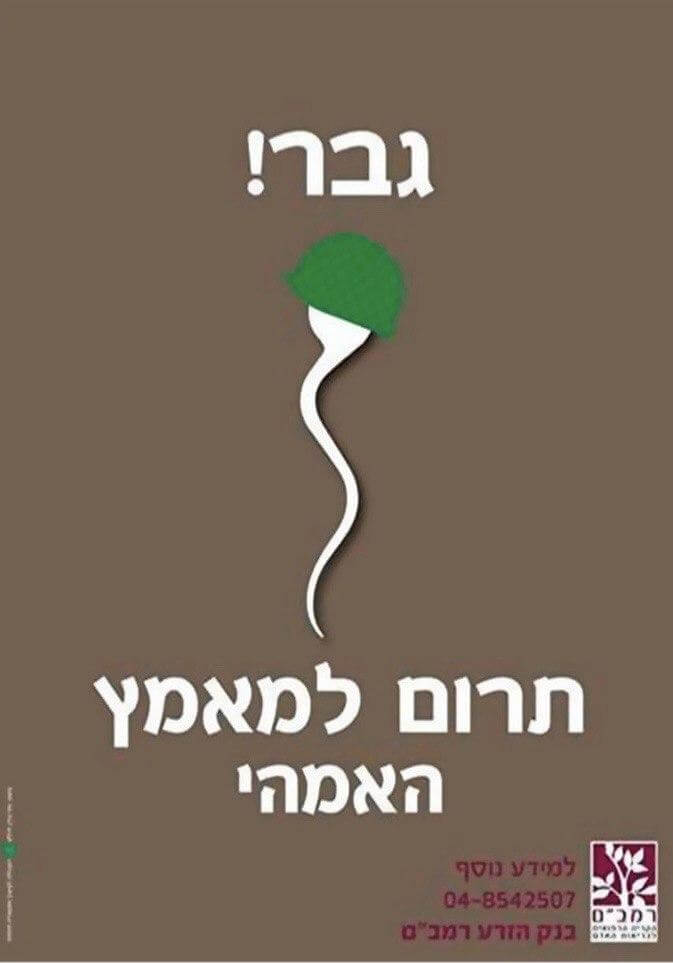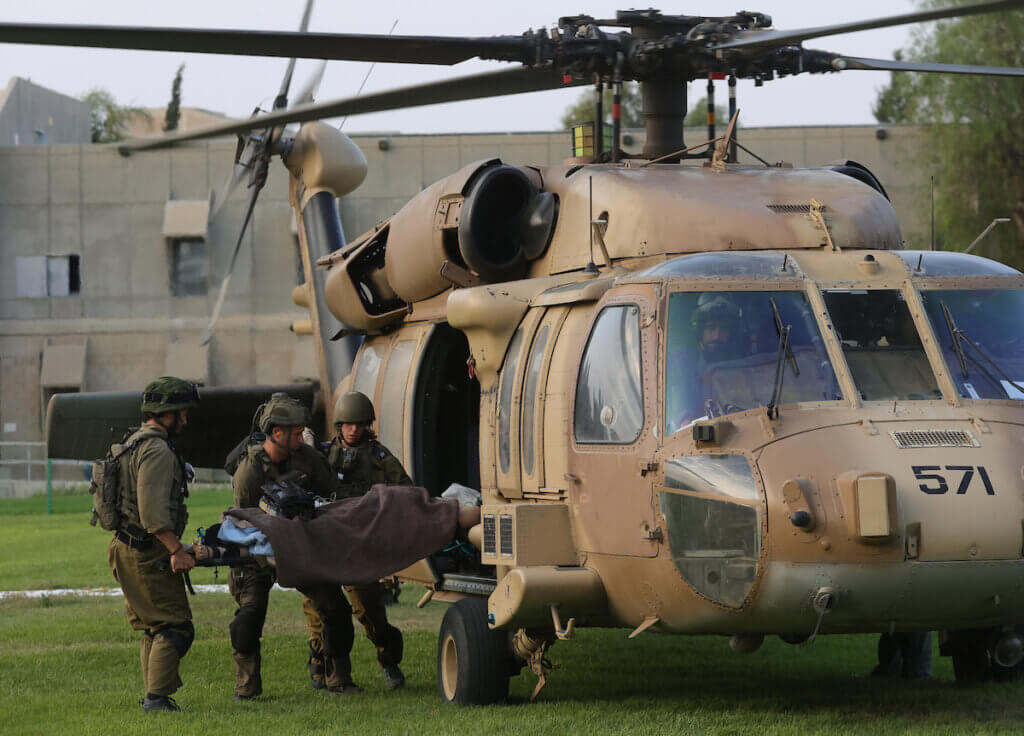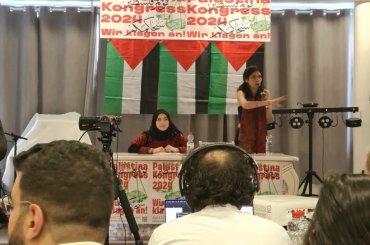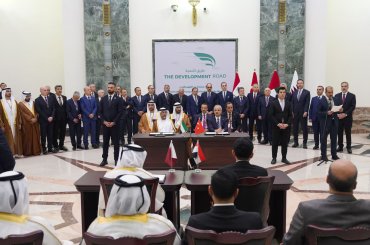On Saturday night, October 7, amid Israel’s preparations for its most violent forays into the Gaza Strip, a peculiar scene unfolded at an Israeli hospital. Families of three fallen soldiers arrived with an unusual request — to extract sperm from their deceased sons’ bodies. This procedure, known as sperm utilization, had quietly gained traction in Israel over the years. Scientific research suggests the possibility of sperm retrieval up to 72 hours after death, allowing what is medically referred to as Posthumous Assisted Reproduction (PAR). Within the Israeli context, unlike anywhere else, PAR has predominantly been associated with individuals affiliated with the military. Following the events of October 7, the Israeli army took it upon itself to inform every family of a fallen soldier about this option and to facilitate the family’s contact with the necessary parties to carry out the procedure. Since then, Israeli hospitals have extracted sperm from the bodies of numerous fallen servicemen.
The ethical quagmires surrounding this form of reproduction are not novel, but in Israel, this phenomenon assumes a unique and deeply securitized dimension. It transcends domestic boundaries, reflecting the deep securitization and militarization of the nation. Servicemen are revered as the embodiment of national masculinity, and the act of posthumous fatherhood is perceived as a homage to these fallen soldiers — a means to ensure their legacy endures. A striking manifestation of this transformation from the intimate to the national is exemplified in cases where soldiers had no partners. In such cases, families often seek female volunteers, many of whom have never crossed paths with the deceased, to potentially carry their children. Shockingly, recruiting these volunteers has proven to be less challenging than expected. In fact, when families sought volunteers or advertised their quest through media and social platforms, they were met with overwhelming responses. The first recorded case dates back to 2002, Keivan Cohen, an Israeli soldier killed in the Gaza Strip. Within just one hour of making an announcement, his family received 200 responses.
This inclination among Israeli women and couples to choose sperm from soldiers is not surprising. The militarization of reproduction and masculinity has a long history in Israel. Nevertheless, what is particularly striking is that these preferences intensify during periods of extreme violence against Palestinians. In 2014, during the Israeli war on Gaza, which resulted in the deaths of over 2,000 Palestinians, the vast majority of whom were civilians, Israeli sperm banks saw a surge in demand for sperm from soldiers serving in combat units. Since then, sperm banks have actively incorporated the military backgrounds of donors into their profiles, with some banks even rejecting donors who haven’t served in the army.

During my research on PAR in Israel, I followed several cases of fallen soldiers whose families publicly sought volunteers. But one particular case struck me the most — the case of Barel, an Israeli soldier killed on the Gaza border in 2021, where he served as one of the snipers responsible for the deaths and injuries of hundreds of civilian protesters. Last year, his mother took to her Facebook account in search of a volunteer willing to conceive her son’s potential child. Her post read:
‘This is my son. He was tragically taken from us about six months ago by a terrorist. I am seeking a woman who can wholeheartedly commit to our family’s purpose, nurture my grandson, and become an integral, loving part of our family. Over the past six months, Barel’s family and friends united around a singular objective: to carry forward his legacy.’
On the mother’s Facebook page, alongside her plea for a volunteer to carry her son’s child, was a photo of her standing beside what appeared to be a military vehicle covered with Barel’s image. I later discovered that after Barel’s death, a “civilian militia” was founded with the sole purpose of preserving his name. Named Sayeret Barel (Hebrew for “The Barel Commandos”) and described by several Israeli media outlets as an extreme right-wing group, the Sayeret Barel is, according to its website, “a group of civilian soldiers who provide support to the army and police.” Supported by the local government in Beersheba and the police force, students from the southern city receive substantial grants in exchange for enlisting in this military group. The establishment of the militia is attributed to Almog Cohen, a Knesset member associated with the Otzma Yehudit party, led by Itamar Ben-Gvir, widely recognized as one of the most extremist figures in Israel. Cohen openly advocates for the expulsion of Palestinians and, during a public debate in Israel regarding the role of this militia, he stated, “If Barel were alive, he would not have waited for the police to act.”
“The connection between the two campaigns — one aiming to conceive a child from Barel and the other seeking to establish a militia in his name to perpetuate his legacy — is not coincidental. Several comments on the photo shared by the mother emphasize that both a child and a military militia serve his continuity. While reproductive preferences in a deeply securitized society constantly produce and maintain forms of hegemonic masculinity, the sought-after continuity is not solely that of an individual as a family member, a son, or even a man, but primarily as a soldier in a combat unit.
As scholars have argued, for women searching for sperm to mother, information about the donor’s military background serves as an indication of the potential personality of the future child. As described by researchers in the field, the warrior-donor is both the supplier of the product and the core product itself, with his semen seen as the materialistic carrier of his spiritual essence. This spiritual essence is perceived to be his militaristic role in providing safety for the nation and carrying out its national missions. In the Israeli case, these preferences have been deeply securitized, especially when it comes to posthumous reproduction. As such, the belief that the state owes the families of deceased soldiers access to this form of reproduction represents a peculiar perspective unique to Israel.
This practice sheds light on the complex role of the medical institution within a settler colonial order — a role underscored by recent events such as a petition signed by numerous doctors urging the army to target hospitals in Gaza. But more significantly, it illustrates a unique Israeli way of militarizing reproduction, where medicine, masculinity, and militarism intersect, ultimately fostering a settler colonial fantasy in which violence against the indigenous population is not only sought after but closely tied to the envisioned future of the settler nation.
Since the establishment of Israel on the ruins of Palestinian society, not only has Palestinian fertility been viewed as a threat, but Jewish reproductive capabilities have been seen as a source of security and sustainability for the nation. Consequently, the ultimate colonial future is envisioned through and around the capabilities of the muscular Jewish man — in contrast to “the exiled weak Jew” and the fertile Jewish women. This perspective is evident in Israeli regulations of assisted reproduction technologies, as the country is considered one of the biggest markets globally for such technologies. In Israel, the distribution of fertility clinics that provide free services demonstrates this selective pronatalism, as clinics exclusively exist in areas predominantly inhabited by Jewish residents.
These militaristic preferences have shaped the very notions of womanhood and manhood in Israel. As explained by Israeli researchers such as Nitza Berkovitch, not only is motherhood a national mission in Israel, but the formulation of womanhood in Israel is built on considering Jewish women as mothers rather than as citizens or individuals.
In this context where women express their belonging to the nation exclusively as (potential) mothers, Israeli manhood, as suggested by one of Israel’s prominent sociologists, Baruch Kimmerling, is constructed around the concept of the “pioneer” male fighter who deflowers the “virgin” indigenous land. In these national gender performances, as Kimmerling hints, it cannot be denied that these male fighters and the maternal figures are immigrant settlers. The male warrior fights to protect the colonial nation that will always remain in peril, and a woman is assigned the mission to birth and rebirth the nation.



This is so grotesque I’m struggling to get my head round it. Even the practical issues are mind-blowing. How would those women support the children they conceive? Would they qualify as war widows?
is one factor in determining how fascist a state has become.
Wow the parallels with Lebensborn program are unmistakable.
https://en.wikipedia.org/wiki/Lebensborn
In the end it is sexual reproduction with the dead and, in many cases no doubt without consent of the deceased.
It also reinforces the policy of killing Palestinian children en masse, and ensuring that the next generation will be settler colonial. In ecological terms its about the replacement of one population with another, a form of forced succession full of violence.